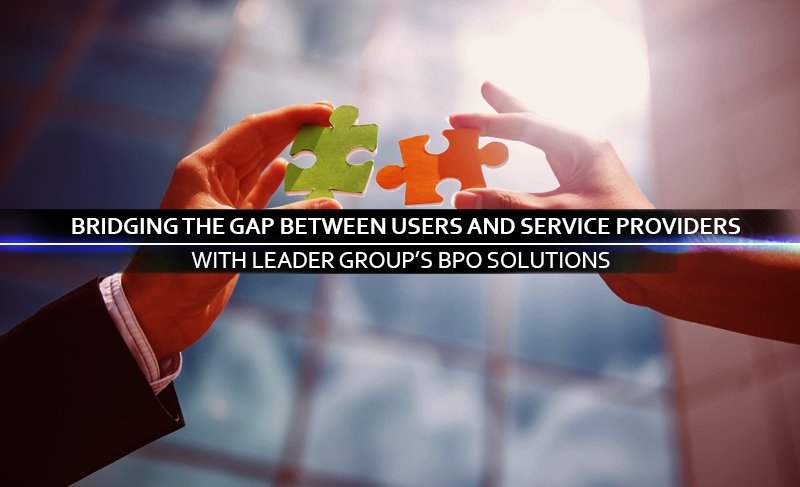
Bridging The Gap Between Users and Service Providers With Leader Group’s BPO Solutions
“BPO Services assess, identify, address, and mitigate the issues customers face by bridging the gap between the users and service providers. Leader Group’s BPO solutions simplify, automate, and streamline users’ help desk management tasks by coordinating with strategic initiatives and organizations’ goals and objectives”.
BPO, abbreviated for Business Process Outsourcing, refers to bringing in other entities for an organization’s business requirements.
At times, not all organizations have expertise in specific business processes; hence, in such situations; it’s both advisable and efficient to go for the experts in the field to deliver value, growth, and resilience.
The business outlooks have changed magnanimously in recent years.
Call it the repercussions of the COVID-19 pandemic or the aftermath of the rising advent of digitization.
Businesses erupted with digitization in their business processes; not only with the ways of performing tasks but also undergoing a massive change in their BCPs.
Outsourcing business operations and services, too; experienced the rising benefits of digitization and hence took essential steps to streamline their business processes in the most digitally driven ways.
The earlier scenarios revealed that an organization used to outsource other services when they found other entities handling their business processes better than the in-house ones.
Organizations invest in outsourcing to improve their business processes and maintain staff and pay a department within their company to handle their business processing requirements.
Benefits of BPO Solutions:
According to a recently conducted research, the global market value of BPO Solutions will reach USD 525 Billion by 2030.
This significant rise in the market value of BPO signifies the rising need for automation and digital services in BPO sectors.
With the worldwide lockdown and the remote and hybrid working models; organizations are moving further with the idea of bringing in industry players to resolve customers’ queries directly with technical expertise.
For instance; the Internet of Things (IoT) initially enabled machines used on the shop floor to share real-time data and build a paradigm shift from the traditional technique of previous data.
Secondly, affordable computation and advanced software aided in creating digital requirements for the business players.
BPO Services has resulted in a plethora of benefits that has impacted the ways businesses are carried out and contribute to the business growth of the organizations.
Increased Cyber Security:
Cybersecurity has become one of the significant priorities for organizations, especially in this digital era; where organizations are vulnerable to cyber threats due to continuous exposure of their digital data to third parties and unidentified cyber threats.
This is true both for BPO companies and for BPO software, where organizations benefit; especially if the organizations lack the resources for in-house cybersecurity measures.
Improved Efficiency:
In the rising demand for digital; organizations are opting for better efficiency to combat the ill effects that data exposure might bring.
The integration of outsourcing companies and outsourcing software suppliers specialize in streamlining core business processes by handling the business processes more efficiently than most in-house solutions.
Better Outputs:
Organizations sometimes invest in outsourcing firms’ to cross-train multiple employees for the same tasks, which often gets repetitive.
This further delays the output processes and causes unnecessary business requirements
to streamline processes such as invoice approval.
Understanding the significance of these industry trends; Leader Group, caters to its clients with standardized and comprehensive BPO solutions that help them leverage the benefits of digitization and resolves customers’ queries efficiently; thereby bridging the gap between the service providers and users.
Furthermore, it provides Inbound, Outbound, and Blended call centers to the organizations that help them drive value, growth, and resilience.
These call centers identify, understand, and customize their solutions based on the business requirements of the organizations.
These call centers are vital in offering personalized services to clients and generating revenue by implementing shared services.
Conclusion:
Resolving customers’ queries and issues is one of the priorities organizations have these days.
Tackling business needs with digitization fetch better results than non-digitized ones.
Organizations with proactive call centers in place allow organizations to leverage the benefits of digitization; thereby enhancing customers’ experience in digitally driven ways.





